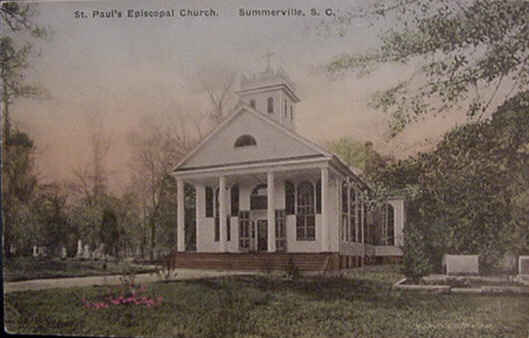Day Five for the Diocese of SC v. The Episcopal Church (TEC) began with a slight hiccup.
(ST. GEORGE, SC) –Day Five for the Diocese of SC v. The Episcopal Church (TEC) began with a slight hiccup. To speed up the testimony of the 36 witnesses, Judge Diane Goodstein Friday asked attorneys for both sides to meet over the weekend to go over testimony that could be stipulated.
When attorneys for the plaintiff told Goodstein that the two parties had agreed that proposed stipulates would include the facts the witnesses would testify to in lieu of live testimony, attorney Tom Tisdale, who represents the rump group that now goes by The Episcopal Church in South Carolina (TECSC), tried to qualify stipulation, effectively diverging from what the plaintiffs had agreed to. Judge Goodstein told the defendants that “Stipulations…they are agreements. I’m hearing from you we don’t have a Stipulation.” She told both parties she would give them 10 minutes to huddle and determine if they had agreement to stipulations.
When they returned from their meeting, both sides had agreed to all the facts that the witnesses would testify to, but also agreed that any conclusions of law would be the sole province of the court.
The stipulations speeded testimony significantly. While only 18 persons testified during the entire first week of the trial 12 witnesses testified on Monday on them. Testimony continued with issues of by-law changes and resolutions, clearly demonstrating that the national church, an unincorporated association, was a distinct entity with which they had no connection and has no legal claim on them. Witness also provided testimony that permission was never given to TECSC to list their church on the website.
One witness, Robert Armstrong from St. Paul, Summerville, testified that his church had donated more than $1 million to various charities during recent years. Plaintiff’s attorney Brandt Shelbourne, reflecting the line of questioning pursued by TEC, asked Armstrong whether he believed the $1 million in donations effectively gave St. Paul ownership rights over the charities. Armstrong drew a chuckle when he said “no.”
On Monday, witnesses testified on behalf of Holy Cross, Stateburg; St. Paul’s, Bennettsville; St. Jude’s, Walterboro; Good Shepherd, Charleston; Church of our Saviour, Johns Island; St. Matthew’s, Fort Motte; St. Michael’s, Charleston; St. Matthias, Sumerton; Prince George Winyah; St. Paul’s, Summerville; St. Paul’s, Conway, and Church of the Cross, Bluffton.
Those churches remaining to provide testimony for the Plaintiff are: Christ Church, Mt. Pleasant; St. John’s, Johns Island; Holy Trinity, Charleston; Old St. Andrew’s, Charleston; St. Philip’s, Charleston and Trinity Edisto.
About the Diocese of South Carolina
The Diocese was founded in 1785 by the parishes of the former South Carolina colony. Based in the Lowcountry of South Carolina, the Diocese is one of the oldest religious districts in the United States and counts among its members several of the oldest, operating churches in the nation.
The Diocese of South Carolina is recognized by Anglican Dioceses and Provinces around the world, many of whom have broken fellowship with The Episcopal Church, and in 2013 the Diocese joined the global Fellowship of Confessing Anglicans and entered into a formal relationship of Provisional Primatial Oversight with Global South primates.

